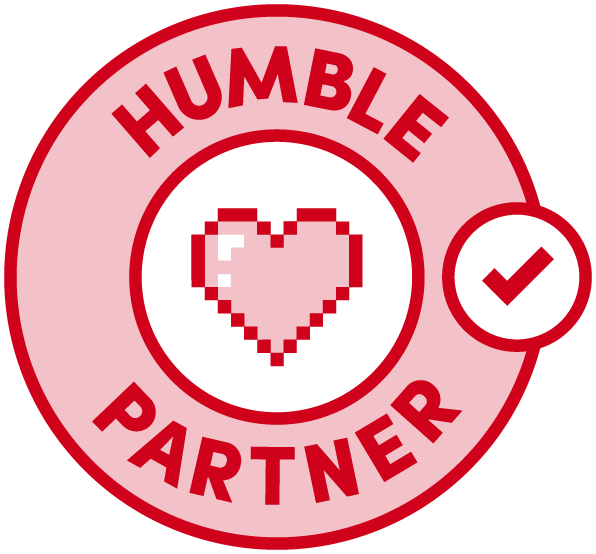The promise of a game streaming service like Google Stadia is hard to reject. You can theoretically play high-quality games almost anywhere, over the internet, without much more than a bit of tech and a second thought. Taken in good faith, that’s a reality worth wishing for.
I’m a firm believer in that future after spending a week with Stadia, but it’s also obvious there’s a long road ahead for Google to take us there. Stadia’s most innovative features won’t be ready until at least 2020, and there are layers of small issues plaguing the here-and-now basics. Even then, Google’s made us aware of a slew of things that will change on Stadia’s Nov. 19 launch. I’m not going to wait to 2020 to review Stadia, but I am going to hold off until I’ve spent enough time with it under the same conditions as a paying customer.
With cloud gaming on the mind, and having finally seen what Stadia (mostly) is, it’s becoming increasingly difficult to ignore the other gaming giants next to Google at the raceline: Microsoft and Sony. Sony’s PlayStation Now cloud service was recently priced down to $10 a month (w/discounts for longer-term commitments), and that gets you access to hundreds of PlayStation games from multiple console generations, on a few different devices. Microsoft’s xCloud game streaming service only exists as a private beta, but our early experiences streaming to Android phones have been smooth. Microsoft also just expanded the available library of games from four to 50, simultaneously revealing that xCloud will become a part of the Xbox Game Pass subscription starting next year.
Neither Microsoft nor Sony, however, can match Stadia’s framework today, which emphasizes extensive multiplatform support, quality-of-life features that seamlessly connect the experience across devices, and 4K, 60 FPS gameplay with HDR and Dolby 5.1 on your TV. Google is one of the few companies positioned to make cloud gaming an experience on par with dedicated consoles or PCs, and it seems to be going for it.
Google also says Stadia is the “one place for all the ways we play,” a bold claim to the couch, your desk, and the palms of your hands. The decision to charge per game, in addition to a service fee for the high-end Stadia features, fuels high expectations. Given enough time, Google could theoretically rampage in with a roar and scare the pants off the competition with a revolutionary service. But Google is effectively gesturing hello, asking if we’d like to play with a work in progress.
For the past week I’ve played bits of Red Dead Redemption 2, Destiny 2, Mortal Kombat 11, Shadow of the Tomb Raider, Kine, and the new Stadia exclusive, Gylt–a youthful adventure with Alan Wake vibes. These tests took place on a Pixel 3 XL phone, on multiple PCs and laptops, and a 4K TV, primarily using Google’s official Stadia controller.
And wouldn’t you know it, Stadia worked well most of the time. On a good connection, I was looking at console-level graphics on a mobile device, and with the Founder’s Edition controller and a custom plastic clip, I also had console-quality controls. When I got tired of squinting at the phone, which is admittedly a bit of an issue for most games, I might transfer over to a PC by opening the Stadia quick menu and redirecting the display drop-down to an open Chrome browser tab. You have to hardwire the Stadia controller to your PC for now, but you can alternatively use an Xbox One or DualShock 4 controller to play wirelessly. If 4K is what you’re really after, you can point the Stadia stream towards your Chromecast Ultra (included in the Founder’s Edition bundle).
But as the old saying goes, just because you can doesn’t mean you should, especially if you’ve got traditional gaming hardware within reach. During roughly a week of tests, Stadia exhibited a lot of small pain points. I expected to not to have to sneer at sub-optimal latency, video compression artifacts, or wrestle with finicky software. Regrettably, I bumped into all of these issues on multiple occasions. I can play games for long periods of time under generally acceptable conditions, but it’s all too easy to focus on the little annoyances that make Stadia feel like a less-than alternative to traditional console or PC gaming.
The Stadia of today, however, won’t even be the Stadia of tomorrow, when Google officially launches its ambitious gaming platform to early adopters, the selection of Stadia games, their cost, the number of players on servers, the publisher-side services of some games, the Google Assistant button, some of Mortal Kombat 11’s modes, support for wireless PS4 and Xbox One controllers on mobile, sharing captured content, being able to voice chat, and seamless exiting of games on mobile will, hopefully, be finalized and functional.
Not everything about Stadia is in limbo, and I’m happy to say that the final controller is a winner. With a body akin to a Switch Pro controller and a layout similar to a DualShock, the Stadia controller is both familiar and new. Materially, it’s good looking and pleasing to hold, and practically, it works like a charm. I only have good things to say about the Stadia controller, and it should only increase in value as Google continues to release new features centered around its built-in microphone and Wi-Fi connection.
A word of warning, though: The Google-recommended smartphone clip scratches at the Founder’s Edition controller’s finely textured finish, leaving permanent scuffs in its wake. The Claw, as it’s called, has a very sturdy grip, and the tension of the phone clamp is equally intense. Definitely think twice before investing in a phone clip if you’re sensitive to the cosmetic condition of your controller, but don’t take the opportunity for granted, because the Claw positions the phone in an ideal way for mobile gaming.
Be careful with that controller! The Claw can and will scratch it.
We can also weigh in on Stadia’s data demands, which, as stated by Google, will consume up to 20 GB of data an hour for 4K gameplay, or 4.5 GB an hour at 720p everywhere else. A balanced option exists where Google will calculate a data rate somewhere in the middle, based on your network environment.
To make a long story short, I had to drop $50 extra on my internet bill to unlock my data cap, which I currently hit, or come close to hitting, every month. It’s a cost I can afford because it’s for work, but when I try to imagine the impact that would have on me as a typical consumer, I dare say it’s a dealbreaker.
Even with my occupational justification, the additional cost is making me reconsider the value of Stadia’s convenience when I’m required to increase my utility bill and also pay out of pocket for most games, many of which are old titles that I’ve played or decided not to play on other platforms. Destiny 2 and Samurai Shodown is free at launch, and Google promises to add more free games over time to Pro subscribers, but what does that do for me today, as a virtual founding member of Stadia?
At the very least, I can attest to a handful of games that will be a part of the launch lineup. Because it’s free for all Stadia Pro user, Destiny 2 is bound to be one of the most popular games out of the gate. Under ideal conditions, Destiny 2 plays decently, with responsive controls and good-enough graphics. If, however, you encounter lag, you will struggle during firefights while your reticle darts and stalls. It’s also one of the more challenging games to play on a phone screen due to the relative size of distant enemies that you’d otherwise be able to see on a TV, but which appear miniscule when shrunken to fit the smaller screen.
Mortal Kombat 11 is another game that becomes unplayable without a connection strong enough to support quick actions and reactions. That almost goes without saying for most video games, but it’s especially true with a fighting game like MK. But when everything works as it should, MK doesn’t feel too far off from the real deal–though miniscule input latency is always apparent if you’re explicitly looking for it.

I can play games for long periods of time under generally acceptable conditions, but it’s all too easy to focus on the little annoyances that make Stadia feel like a less-than alternative to traditional console or PC gaming.
Of the games made available to us, Shadow of The Tomb Raider proved to be the best balanced for Stadia, which is more of a factor of the game’s relatively low-key demands.
Gylt is the one exclusive game in the package, but it is a far cry from a system seller, leaning into basic stealth design and a childlike definition of horror as its main selling points. As mentioned earlier, it evokes an atmosphere that can best be compared to Alan Wake, with strange supernatural disturbances wreaking havoc on the real world. There are monsters standing between you and the next item or puzzle, and your best bet for staying alive is to sneak undetected, or fight back using a flashlight to defeat monsters. After an hour of playing Gylt, my interest dried up. I can see how it might entertain someone who isn’t dedicated to keeping up with the latest games, but it’s derivative design is likely too middle-of-the-road to satisfy the gaming enthusiast waiting to see what Stadia’s all about.
I have experienced less than half of Stadia’s launch library at this time. There are more games coming very soon, but most are titles that are readily available on other platforms. So far, Google’s tech has impressed me to the point where I would comfortably play most in a browser tab or on a phone without batting an eye, but then I consider that I will have to buy the vast majority of games, and I’m left in awe of the value Microsoft and Sony are offering, even if their overall services lack Stadia’s flexibility. For the moment, cloud gaming still feels like a decent alternative to the real thing, and I don’t think I’m ready to dedicate a full-price game purchase to a secondary platform.
I will continue to prioritize my consoles and PC for the foreseeable future, but I will also continue testing Stadia in the days to come, and come back soon with my final thoughts on Stadia’s 2019 debut.
from GameSpot – Game News https://www.gamespot.com/articles/google-stadia-review-in-progress-too-little-too-so/1100-6471524/









